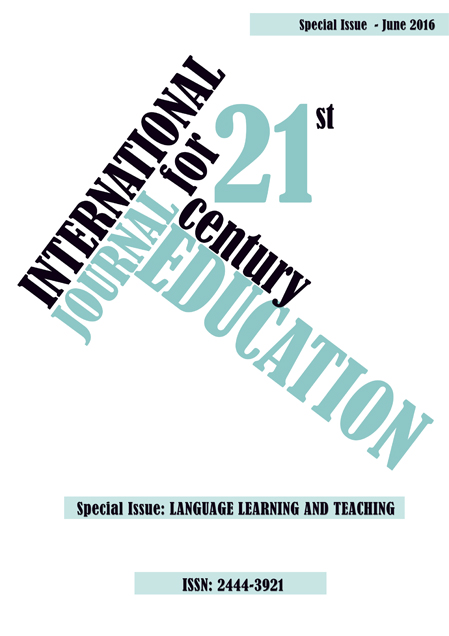E-POLITENESS: AN ANALYSIS OF TAIWANESE EFL LEARNERS’ EMAIL DISCOURSE ON REQUEST STRATEGIES
Contenido principal del artículo
Resumen
This study aims to investigate EFL learners’ interlanguage pragmatic development through the elicited request emails addressed to the faculty in an institutional setting. Sixty Taiwanese students of two linguistic levels (i.e., high-intermediate, and low-intermediate) were included and different email tasks with varied imposition levels were designed to examine if and how students’ use of request strategies and politeness features would vary accordingly. In total, 180 emails were composed for qualitative and quantitative analysis. By applying Blum-Kulka, House and Kasper’s (1989) CCSARP framework, the results revealed that students of both levels adopted more direct strategies as main requestive head acts for clarity and used the most numbers of supportive moves prior to the request in the highest imposition request. Different combinations of supportive moves were also adopted for different request tasks by the two groups, indicating students’ awareness of different imposition levels inherited in different tasks. In addition, the high-intermediate proficiency group displayed more varieties of internal and external modifiers in their request than their less proficient counterparts. Some developmental sequences in the use of politeness features can thus be identified. However, certain syntactic and lexical downgraders never appeared in both groups’ email messages, suggesting the need for explicit instruction. From the preferred use of direct strategies, supportive moves, as well as a pre-posed request sequences, L1 pragmatic transfer can be observed in the email messages of both groups. The possible perlocutionary effect of this transfer will be further explored in this study. The findings in this study can provide practical suggestions for classroom intervention, particularly in the area of pragmatic instruction in EFL classrooms.
Descargas
Los datos de descargas todavía no están disponibles.
Detalles del artículo
Cómo citar
TSENG, C.-T. H. (2016). E-POLITENESS: AN ANALYSIS OF TAIWANESE EFL LEARNERS’ EMAIL DISCOURSE ON REQUEST STRATEGIES. International Journal for 21st Century Education, 3(Special), 35–62. https://doi.org/10.21071/ij21ce.v3iSpecial.5707
Número
Sección
Articulos
Avisos de derechos de autor propuestos por Creative Commons
1. Política propuesta para revistas que ofrecen acceso abierto
Aquellos autores/as que tengan publicaciones con esta revista, aceptan los términos siguientes:
- Los autores/as conservarán sus derechos de autor y garantizarán a la revista el derecho de primera publicación de su obra, el cuál estará simultáneamente sujeto a la Licencia de reconocimiento de Creative Commons que permite a terceros compartir la obra siempre que se indique su autor y su primera publicación esta revista.
- Los autores/as podrán adoptar otros acuerdos de licencia no exclusiva de distribución de la versión de la obra publicada (p. ej.: depositarla en un archivo telemático institucional o publicarla en un volumen monográfico) siempre que se indique la publicación inicial en esta revista.
- Se permite y recomienda a los autores/as difundir su obra a través de Internet (p. ej.: en archivos telemáticos institucionales o en su página web) antes y durante el proceso de envío, lo cual puede producir intercambios interesantes y aumentar las citas de la obra publicada. (Véase El efecto del acceso abierto).

